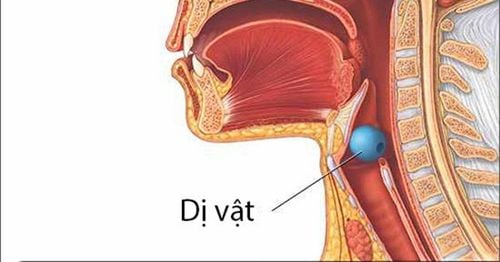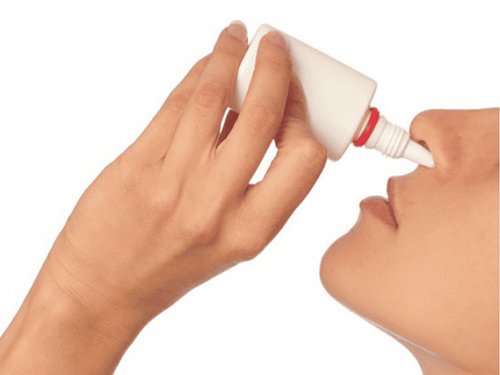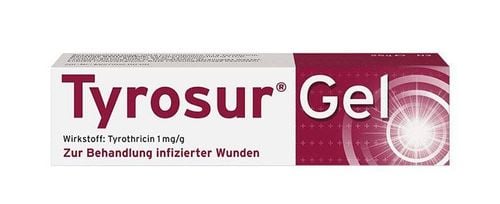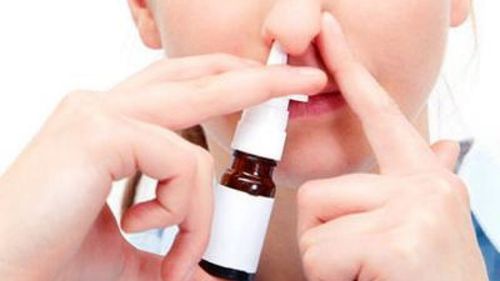This is an automatically translated article.
The article was professionally consulted by Dr. Nguyen Van Dinh - Head of Respiratory - Asthma - Allergy - Clinical Immunology Unit, Vinmec Times City International Hospital.Allergic rhinitis often occurs when the weather changes, when the seasons change. Although the disease is not life-threatening, it has a significant impact on the health and daily life of the patient. In addition, this disease can also lead to many complications. Let's find out what is the reason why allergic rhinitis often occurs during the change of seasons, the symptoms and ways to prevent the disease.
1. What is allergic rhinitis?
Allergic rhinitis is a condition in which the nasal mucosa reacts when exposed to respiratory allergens, causing characteristic symptoms such as: stuffy nose, itchy nose, sneezing and runny nose.
2. Causes of Allergic Rhinitis
The cause of allergic rhinitis is mainly due to the body's response to contact with foreign objects called antigens or allergens. Some common allergens that cause disease are:
Dust. Pollen. Chemistry. Cotton, fabric, yarn. Dog and cat hair. Parasites: Mold spores, fleas, mites, mites,... Smoke: Kitchen smoke, secondhand smoke, factory smoke,... Some pharmaceuticals. Due to weather: erratic rain and sun, humidity, sudden heat and cold,... These agents are common in our country, and they act as antigens, when they encounter the corresponding antibodies in the body. , will immediately occur a reaction phenomenon, that is an allergic reaction. This allergic reaction occurs right in the mucous layer of the upper respiratory tract (nose, throat, sinuses, ...) causing inflammation and irritation of the mucosa with manifestations such as itchy nose, sneezing. , stuffy nose and runny nose.
When changing seasons or when the weather changes related to changes in pollen concentrations along with hot and humid weather is also a favorable environment for mold spores and parasites to develop and cause disease. This is the reason why allergic rhinitis often occurs during the change of seasons.
In addition, atopic allergy is closely related to allergic rhinitis, because people with allergic conditions (chronic urticaria, eczema, asthma, ...) have a high incidence of the disease. than the average person.
In addition to the main route of inhalation, allergens and pathogens can also enter the body through the skin or through eating (some foods like shrimp, crab, snail, etc.) ).
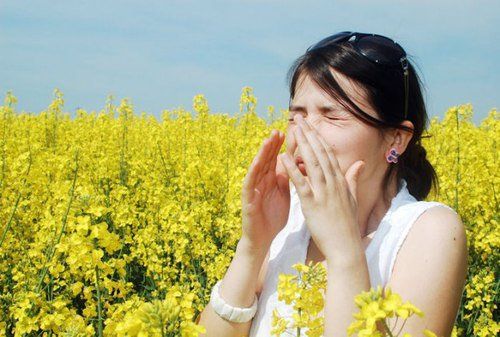
3. Manifestations of allergic rhinitis
Allergic rhinitis is divided into two types:
Seasonal allergic rhinitis: Usually occurs suddenly at the beginning of the cold season, or at the beginning of the hot season, or erratic rain and sun, hot and humid. The patient will have the following symptoms:
The patient feels a burning sensation in the nose, constantly sneezing, itchy nose. The patient may experience burning, redness, and watery eyes. Next, the patient will have a lot of clear nasal discharge like water. The patient has a burning sensation in the nasopharynx and pharynx. Symptoms appear in episodes during the day, especially in the early morning when you wake up, and then subside in the evening. If left untreated, the condition can last from a few days to a few weeks. Non-Seasonal Allergic Rhinitis: The disease occurs non-seasonally, regardless of the weather. The patient will have symptoms similar to seasonal allergic rhinitis, but there are a few differences:
The inflammation is not paroxysmal, the patient only sneezes a few times at a time, occurs several times in a day. day. Nasal congestion increased and the time between sneezes lasted longer.
4. Prevention and treatment of allergic rhinitis
When there are symptoms of allergic rhinitis, the patient should be examined and treated early, right from the start. It is necessary to find out the cause of the disease, from which the appropriate treatment direction. The use of the drug must be according to the prescription of the doctor.
Preventive measures:
People with allergic rhinitis should not keep cats and dogs in the house. Conduct periodic cleaning of blankets, sheets, pillows, cushions, upholstery,... to limit the existence and development of parasites (finding, mites). It is necessary to keep the house cool, clean and avoid moisture to limit mold growth. Patients need to clean their teeth daily, brush their teeth after eating, before and after sleeping. Patients should also avoid or limit dust exposure by wearing a mask when cleaning the house and when going out. At the time of season change, the weather changes erratically, tropical depressions, storms, floods, etc. People with allergies need to keep their body warm: wear warm enough, wear a scarf to keep your neck warm, take a bath. hot water,... So the time of change of seasons is also a cause of allergic rhinitis, because the weather changes create favorable conditions for parasites such as molds to grow and cause disease. Therefore, people with allergies need to take appropriate precautions when the weather changes. When there are symptoms of the disease, it is necessary to seek medical attention and treat it early, to avoid easily leading to complications.
Please dial HOTLINE for more information or register for an appointment HERE. Download MyVinmec app to make appointments faster and to manage your bookings easily.






